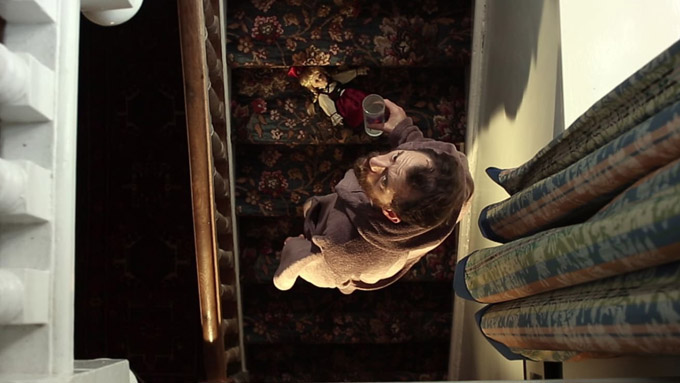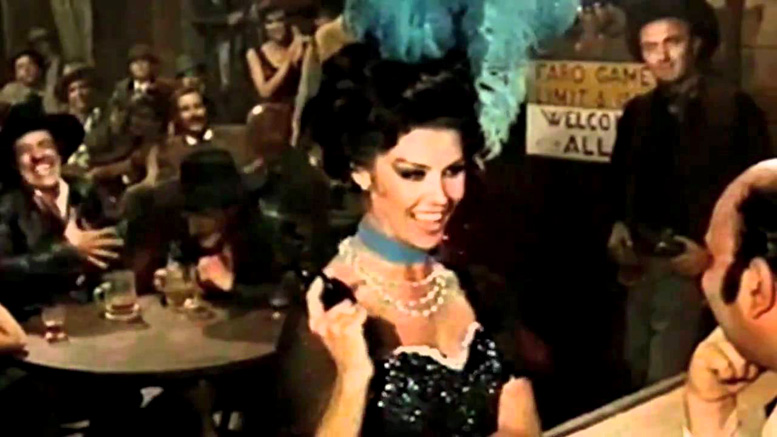
1993
Length: 110 mins
Italy
Produced by Antonio Avati for Duea Film, Istituto Luce Italnoleggio, Penta Film, Union P.N.
Distributed by Istituto Luce Italnoleggio, San Paolo Audiovisivi
Director: Pupi Avati
Story: Pupi Avati
Screenplay: Pupi Avati
Cinematography: Cesare Bastelli
Music: Riz Ortolani
Editor: Amedeo Salfa
Art director: Giuseppe Pirrotta
Cast: Luigi Diberti (Lord of Malfole), Arnaldo Ninchi (Folco), Massimo Bellinzoni (Baino), Brizio Montinaro (Lord of Campodose), Dalia Lahav (Roza), Eleonora Alessandrelli (Margherita), Andrea Scorsoni (young man of Malfole), Massimo Sarchielli (Margherita’s father), Lorella Morlotti (Venturina), Consuelo Ferrara (the abottess), Marcello Cesena (Agateo), Davide Celli (Bagnaro)
Over the last forty years – since his debut Thomas e gli indemoniati in 1970 – Pupi Avati has proven to be one of the most prolific and acclaimed directors working in Italy. His films range from giallos (La casa dalle finestre che ridono (76)) to biopics (Noi tre (84)), from comedies (Il cuore altrove (2003)) to dramas (Regalo di Natale (86)). Despite their success with both critics and audiences domestically, though, very few of them have made much of an impression on – or even been released to – the English speaking markets. There are reasons for this: they tend to be small scale, intimate affairs, shot in a distinctive and somewhat idiosyncratic fashion, and his very productivity does mean that some of them can come across as seeming rather undercooked. Magnificat, his 1993 film, is a case in point.
Set in a minor Italian kingdom in the late Carolingian age, it features a series of vaguely intertwining vignettes rather than a plot, following a number of characters whose stories aren’t really developed in any kind of way over the course of the running time. There’s Baino (Massimo Bellinzoni), a young man appointed assistant to the royal executioner, Folco (Arnaldo Ninchi), who travels round the kingdom dispensing justice (all the while mourning the loss of his own son). Rosal (Dalia Lahav), the Kings concubine, pregnant with his firstborn child, travels to a famous abbey in order to give birth, arriving at roughly the same time as a young novice, Margherita (Eleonora Alessandrelli). Agnello (Vincenzo Crocitti), makes a journey to all the monasteries and convents conducting a census of all the nuns and monks who have died over the winter, passing on his way the dying Lord Malfole (Luigi Diberti) who is just passing his earthly possessions onto his three bastard sons.

A weird mixture of historical drama and neo-realism, it comes across a bit like Pasolini’s The Canterbury Tales or Decameron but with all the bawdiness removed. Avati has always been interested in rites and rituals – whether it be those of superstitious country folk or urbane gamblers and scientists – and this ends up being an almost anthropological study of a the historical period. There’s a lot of time dedicated to the process of trial and execution, marriage and childbirth ceremonies and monastic rules and regulations. Some of this is fascinating, some of it amusing, but what it lacks is any kind of cohesive structure to bring forth any kind of drama. The most interesting sequences are those in which Baino and Folco spend a couple of days with an unfortunate, condemned man, before summarily drawing and quartering him, and in which Malfole’s son tries fruitlessly to make contact with his father after his death. But beyond that there’s little sense of propulsion or drive.
Despite this, though, it’s curiously compulsive. The cinematography, by Avati regular Cesare Bastelli, is excellent, and there are a number of arresting, almost surreal visual compositions. Despite the fact that it’s extremely slow, the lethargic, almost plodding ambience and hauntingly minimal soundtrack somehow draw you in, and the weird mixture of pseudo-documentary and cinematic poetry is fascinating in its own right.

